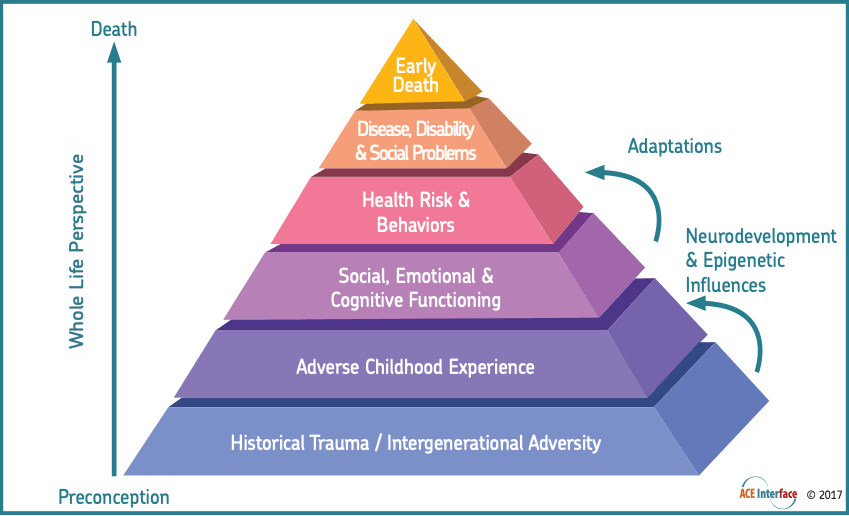Family Service addresses the social determinants of health through a trauma-informed care lens.
Our life experiences shape us. By understanding the past experiences of our families, we are better equipped to help.
When leading with trauma-informed care lens, we ask “What happened to you?” and “How do you interpret what happened to you?” instead of “What’s wrong with you?”.
By asking these questions, our team can better understand each individual person’s experiences and help create a customized plan for them, including their overall goals and the optimal program referrals to help them achieve those outcomes.
We follow the six guiding principles of trauma-informed care:
1. Safety
2. Trustworthiness and Transparency
3. Peer Support
4. Collaboration and Mutuality
5. Empowerment, Voice and Choice
6. Cultural, Historical, and Gender Issues.
At Family Service, trauma-informed care means helping our families and team members improve their physical, mental, and emotional strength. Trauma-informed care and trauma-informed approaches are integrated into our day-to-day work as well as our interactions and services with our clients, partners, and employees
Family Service leads the Family Support Services Workgroup of the South Texas Trauma-Informed Care Consortium (STICC) and participates in other STICC workgroups.
STICC works to build a certified trauma-informed Bexar County and decrease the effects of adverse childhood experiences (ACEs) and other trauma.
Adverse Childhood Experiences
Our trauma-informed care approach links to Adverse Childhood Experiences.
The ACEs survey looks at potentially traumatic experiences occurring between the ages of 0-17 years, such as witnessing or experiencing violence, exposure to substance abuse, and loss of a family member. These events can have long-term health effects and can potentially cause toxic stress. Toxic stress affects children’s brain development and can change how we react to situations in the future.
ACEs can have long-term effects on well-being. They can affect how we form relationships, lead to the inability to keep a steady job and struggles with finances, they may cause mental health challenges, and challenges with staying in school. Resiliency and strong support networks help us navigate our ACEs.
The CDC-Kaiser Permanente Adverse Childhood Experiences (ACE) Study is one of the largest studies to have been done on Adverse Childhood Experiences. It shows ACEs are strongly related to overall well-being throughout life.

Source: CDC-Kaiser ACE Study
Our programs work to support and increase resilience to mitigate the effects of ACEs and to decrease the impact of ACEs on future generations. Our programs build resiliency and tailor services to each individual’s journey and experiences. Working together as a community, we can create stable, healthy, and happy homes, schools, community areas, and work environments.
Learn more about ACEs through the CDC: Learn More
Involvement
Family Service Community Involvement in ACEs and Trauma-Informed Care:
- Founding member of the Change in Minds Initiative of the Alliance for Strong Families and Communities, Palix Foundation and Robert Woods Johnson Foundation
- Member of the Texas Health & Human Services Commission’s Trauma-Informed Care Transformation Cohort I
- Charter member of the South Texas Trauma-Informed Care Consortium and Co-Chair of their Family Support Service Workgroup.
- Member of the National Council for Behavioral Health Trauma-Informed Care
- Train the Trainer for ACE Interface
- Train the Trainer for Community Resiliency Initiative


